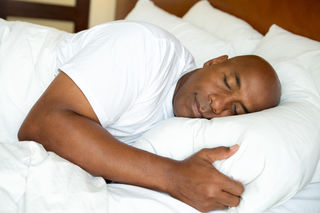Sleep
How Are Sleep and Mood Linked?
Burgeoning research suggests that a good mood may lead to better sleep.
Posted April 9, 2019

We have all woken up grumpy after tossing and turning all night, so it’s not surprising that research demonstrates you are more likely to be in a bad mood after a restless night and a good mood after sleeping well.
Human development researchers are discovering the connection between sleep and mood may be a little bit like the perpetual dilemma of the chicken and the egg. A growing body of evidence demonstrates that your mood on any given day may help to determine how well you sleep that night.
A systematic review by Anthony Ong, a researcher at the Bronfenbrenner Center for Translational Research, demonstrates that people with positive affect – meaning they consistently experience feelings of happiness, joy, excitement, enthusiasm and contentment – are more likely to sleep better. This better sleep, in turn, helps them to maintain their positive mood. The review was published in the journal Sleep Medicine Reviews. It includes 44 studies with more than 14,800 participants in total.
To be sure, the available evidence is far from perfect. “Confounding, publication bias and measurement of positive affect are major concerns,” Ong said.
Still, there is enough evidence to suggest that your mood during the day contributes to your sleep at night.
An earlier study by Ong, published in the Annals of Behavioral Medicine, followed 100 middle-aged participants through phone interviews about their daily experiences and sleeping habits. Researchers asked about the levels of positive emotion that the participants experienced – both daily mood and more stable personality traits.
Like in the systematic review, they found that people with more positive emotions tended to sleep better. This study highlighted a nuance, though. Participants who responded to daily events with negative emotions – even if they generally had a positive attitude to begin with – were less likely to sleep well.
“Whereas possessing relatively stable high levels of positive emotion may be conducive to improved sleep, unstable highly positive feelings may be associated with poor sleep because such emotions are subject to the vicissitudes of daily influences.” Ong said. “These findings are novel because they point to the complex dynamics associated with fragile happiness and sleep that until now have been largely attributed to unhappy people.”
The take-home message: While the evidence is not completely conclusive, there is research suggesting that maintaining a positive outlook on life may help improve your sleep.
Visit Cornell University’s Bronfenbrenner Center for Translational Research’s website for more information on our work solving human problems.


